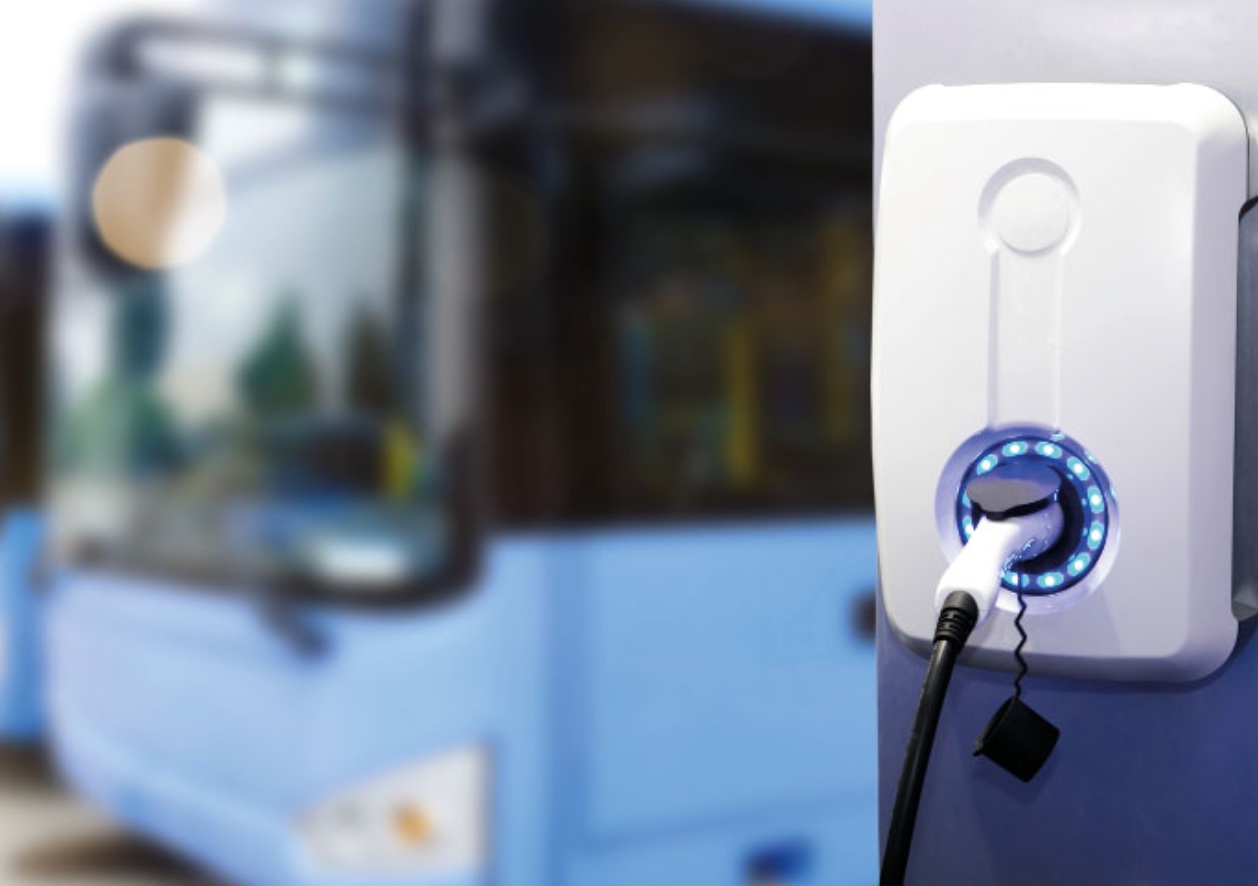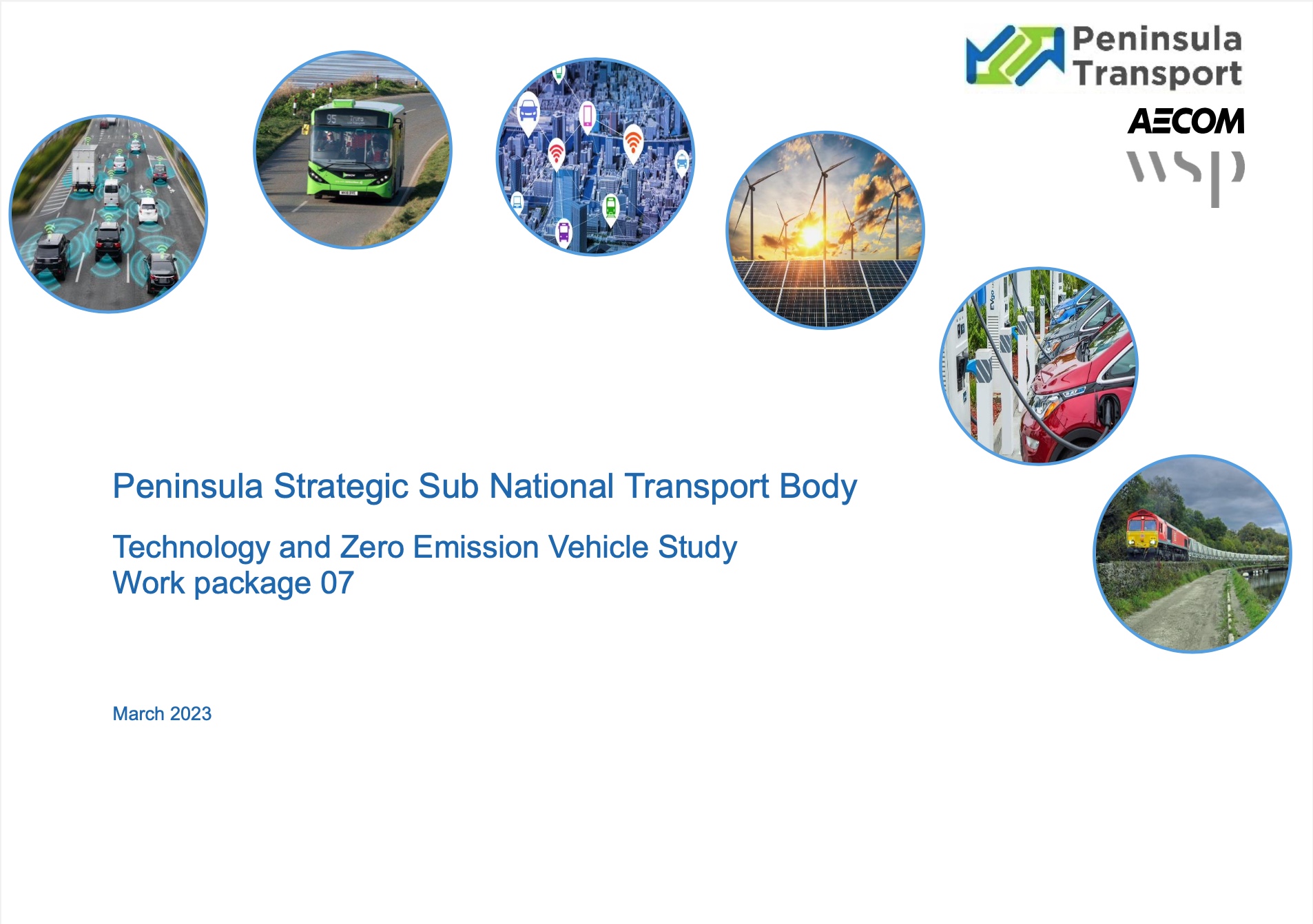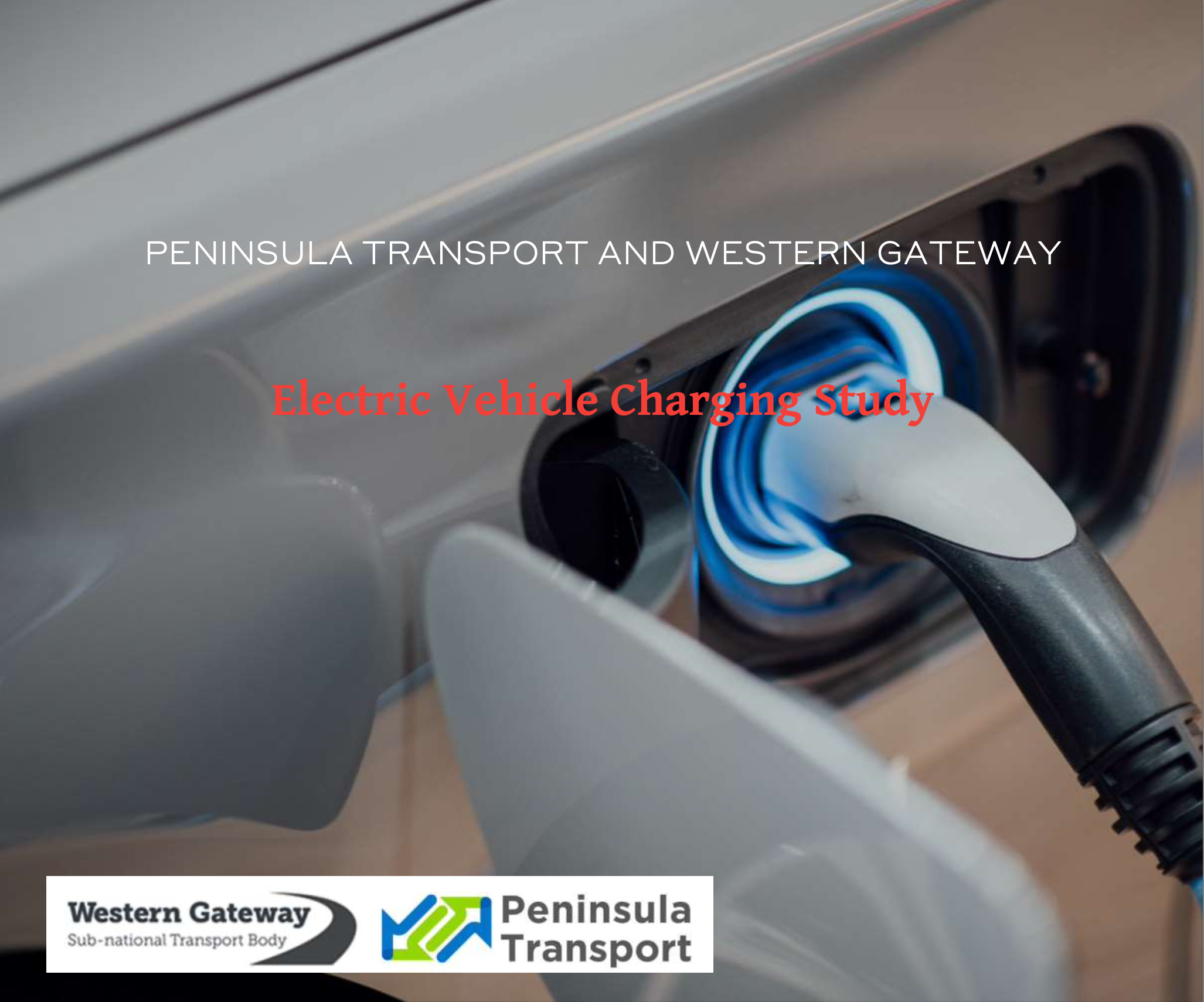Going Electric
Electric vehicles (EV) and alternative fuels have a vital role to play in meeting decarbonisation goals and creating a more sustainable and cleaner transport sector.
EV Strategy
Our work is focused on establishing a comprehensive and fairly priced electric vehicle charging network that caters to the needs of residents, businesses, and visitors. We also want to unlock alternative fuel options to meet the requirements of commercial and business users, including those in freight, as well as introduce the use of ultra-low emission vehicles to support bus and rail services across the peninsula.
Our Electric Vehicle (EV) Charging Study provides the evidence base for shaping future EV charging policy across the region.
The number of EVs is projected to rise from 99,000 today to between 2.3 and 3.2 million by 2035. To keep pace, the public charging network must grow substantially — from just 2,408 charge points in January 2023 to between 54,800 and 74,400 by 2035.
EV Charging Infrastructure
The public charging network must keep pace with demand, giving EV users the confidence to travel across the peninsula knowing they can recharge when needed. Any expansion of the EV network must be guided by robust evidence on demand and future requirements.
To support this, Transport for the North launched the EVCI Framework in October 2022. Throughout 2024, the framework will be rolled out to other Sub-national Transport Bodies (STBs), including Peninsula Transport. Once in place, it will provide a nationwide source of EV charging intelligence, offering consistent data and insights to shape infrastructure planning across England.
A new study by Peninsula Transport, the Sub-national Transport Body (STB) for Cornwall, Devon, Plymouth, Somerset and Torbay, has identified major opportunities to transform transport in the South West through the use of digital technology and Zero Emission Vehicles (ZEVs).
The study highlights two fundamental requirements for all future transport technologies:
-
A dependable energy supply
-
Robust, inclusive digital communications
Focus Areas
Our work on technology and ZEVs will prioritise these two imperatives while building partnerships with the National Grid, UK Power Networks, and private renewable energy providers. Together, we will explore solutions to balance energy supply and demand, helping unlock wider transport benefits including:
-
Expanded EV charging infrastructure
-
Support for industrial decarbonisation
-
Hydrogen production, storage, and supply
-
Rail electrification
Energy and Digital Roadmaps
By working with public and private energy partners, we will develop an energy supply roadmap for the peninsula and seek to attract investment and grant funding for future transport schemes. We also plan to deliver joint pilots and technology trials, while meeting government requirements for STBs to produce regional EV charging assessments.
In parallel, we will strengthen relationships with network operators, major transport providers, digital enablers, and Ofcom to create a digital communications roadmap. This will provide critical insights to support improvements across the transport system.
👉 The full Technology and ZEV Study is available here
Joint Electric Vehicle (EV) Charging Study
Our joint Electric Vehicle (EV) Charging Study, developed in partnership with Western Gateway STB, provides the evidence base to guide future EV charging policy across the region.
The study gives local authorities the data they need to plan effectively — identifying where chargers should be located, how many will be required, and what types of chargers will best meet demand. It considers the different needs of rural and urban areas, seasonal variations, and potential opportunities for private sector investment.
Using the WSP EV:Ready model, the study projects future EV growth out to 2050. With just over 99,000 EVs currently on the road, uptake is expected to rise dramatically to between 2.3 and 3.2 million by 2035.
To keep pace with this growth, the public charging network will need significant expansion. As of January 2023, 2,408 charge points were already in operation, but projections show demand rising to:
-
11,400 – 13,400 by 2025
-
24,000 – 33,600 by 2030
-
54,800 – 74,400 by 2035
Meeting this demand will require a combined effort from both the public and private sectors. By 2030, the public sector alone is expected to deliver 10,600 – 20,000 charge points across the South West.
Next steps
- Development of a spatial planning tool for uptake, an online dashboard which will allow councils to cross-examine the data in detail
- Set up a South West EV forum
STB EV Action Plan
The EV Forum is central to achieving our goal of “going electric.” It brings together leading organisations from across the EV sector to collaborate and deliver on the South West’s charging and infrastructure needs.
The forum will be driven by an EV Action Plan, currently being developed in partnership with Western Gateway STB. This plan will set out how STBs can best support local authorities in delivering EV programmes, while also identifying opportunities for cross-boundary charge point provision to ensure a consistent, joined-up network across the region.
South West EV Forum
The EV Forum is central to achieving our goal of “going electric.” It brings together leading organisations from across the EV sector to collaborate and deliver on the South West’s charging and infrastructure needs



